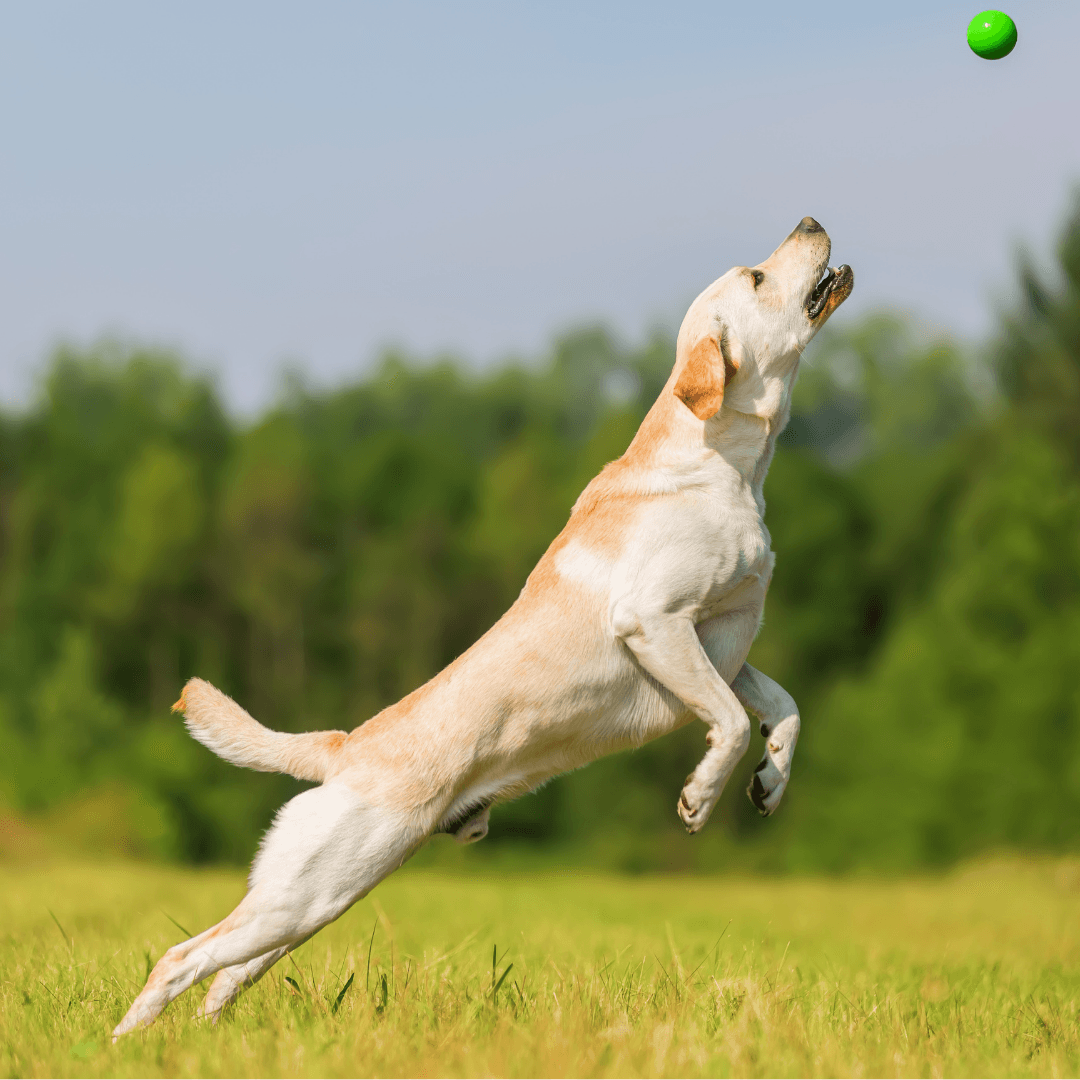As our pets age, it becomes our responsibility as pet owners to prioritise their well-being. A key focus as they enter their senior years is the care of their hips and joints. Here's a comprehensive guide on how to support your dog's hips and joints as they navigate the golden years of their life.
1. Nutrient-Rich Diet:
A well-balanced diet is the cornerstone of good health. Opt for high-quality dog food that includes essential nutrients like omega-3 fatty acids, glucosamine, and chondroitin. These elements play a crucial role in maintaining joint health and reducing inflammation.
2. Weight Management:
Maintaining a healthy weight is crucial for joint health, especially in ageing dogs. Excess weight places unnecessary strain on joints, worsening any existing issues. Consult with your veterinarian to determine the ideal weight for your dog's breed and age, and adjust their diet accordingly.
3. Regular Exercise:
While older dogs may not be as sprightly as they once were, gentle and regular exercise is still crucial. Low-impact activities such as walking and swimming help keep joints flexible and promote overall mobility. Tailor the exercise routine to your dog's individual needs and energy levels.
4. Joint Supplements:
Consider incorporating joint supplements into your dog's daily routine. Glucosamine and chondroitin supplements are widely available and known to support joint health by promoting cartilage development and reducing inflammation. Always consult with your vet before introducing new supplements.
5. Orthopaedic Bedding:
Provide your senior dog with a comfortable and supportive bed, preferably an orthopaedic one. These beds offer extra cushioning and support for joints, making it easier for your furry friend to rest comfortably.
6. Regular Veterinary Check-ups:
Schedule regular check-ups with your veterinarian to monitor your dog's overall health, especially their joints. Early detection of joint issues allows for proactive measures and effective management.
7. Physical Therapy:
In consultation with your vet, explore the possibility of physical therapy for your ageing dog. Physical therapists can design exercises that specifically target joint health and help maintain mobility.
8. Warmth and Comfort:
Keep your dog warm, especially in colder weather. Cold temperatures can exacerbate joint stiffness and discomfort. Provide a cosy and warm environment, and consider using doggy sweaters or jackets during chilly seasons.
9. Hydrotherapy:
Hydrotherapy, such as swimming, can be an excellent way to support your dog's joints without putting undue stress on them. The buoyancy of water reduces the impact on joints while providing a gentle workout.
10. Love and Attention:
Shower your ageing dog with the love and attention they deserve. Regular grooming, gentle massages, and positive interactions contribute to their overall well-being and can ease any discomfort they may be experiencing.
As our canine companions age, their comfort and health become increasingly important. By incorporating these measures into their daily care routine, you're not just ensuring the longevity of their physical health but also enhancing their quality of life in their golden years. Remember, a happy and healthy dog is a joy to behold at any age.

